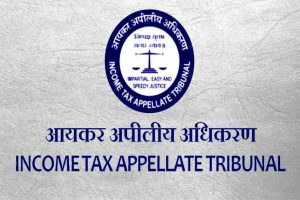Income Tax Appellate Tribunal, Chandigarh (ITAT): The Coram of Sanjay Garg (Judicial Member) and Annapurna Gupta (Accountant Member) examined the issue as to the taxability of the amount of gift received by the assessee from his ‘HUF’.
An appeal was preferred by the assessee against the Principal Commissioner of Income Tax against revision order passed under Section 263 of the Act, whereby the PCIT had set aside the assessment order passed by the Assessing Officer with a direction to make the assessment afresh under Section 143(3) read with Section 147 of the Income Tax Act.
Factual Background
The assessee had filed his return of income declaring an income of Rs 14,32,982 and the assessment was completed by the Assessing Officer under Section 143(3) of the Act accepting the returned income.
Subsequently, the assessing officer reopened the assessment under Section 147 read with Section 148 on the ground that the assessee during the year under consideration had received a gift of Rs 5,90,000 from the Hindu Undivided Family.
In the opinion of the Assessing Officer, since the amount of said gift was more than Rs 50,000, hence the same was exigible to tax as ‘income from other sources’ under Section 56(2)(vii) of Income Tax Act.
PCIT while invoking his jurisdiction under Section 263 of the Act, set aside the order passed by the Assessing Officer, held that HUF does not fall in the definition of relative in the case of an ‘individual’ as provided in the explanation to clause (vii) to Section 56(2).
Though, the definition of a relative in the case of a ‘HUF’ has been extended to include any member of the ‘HUF’, yet, in the said extended definition, the converse case is not included that is to say in the case of an individual, the ‘HUF’ has not been mentioned in the list of relatives.
Thus, PCIT formed a view that though a gift from a member to the ‘HUF’ was not exigible to taxation as per the provisions of Section 56(2)(vii) of the Act, however, a gift by the HUF to a member exceeding a sum of Rs 50,000 was taxable.
To claim an exemption under Section 10(2) of the Act, the member ‘HUF’ must receive any amount for consideration out of the income of the ‘HUF’. That since the assessee had received the aforesaid amount of Rs 5,90,000/- without consideration, hence, the same was not tax-exempt.
Further, the PCIT set aside the order of the Assessing Officer and directed the AO to make the assessment afresh.
On being aggrieved with the order of the PCIT, the assessee filed the appeal.
Analysis, Law and Decision
Coram expressed that the order of the Assessing Officer cannot be said to be erroneous and therefore, the PCIT wrongly exercised jurisdiction under Section 263 of the Act and the same cannot be held to be justified.
Assessee had taken a plea that the gifts had been received by the assessee out of the income of the ‘HUF’ and that the same was exempt under Section 10(2) of the I.T. Act. It was noted that there was no rebuttal or denial either in the order of the Assessing Officer or in the order of the PCIT in respect of the contention of the assessee that the amount in question was received out of the income of the HUF. In view of the said, the assessee was entitled to exemption under Section 10(2) of the Act.
In case an individual member throws his elf-acquired property into a common pool of ‘HUF’, the ‘HUF’ or other members of the ‘HUF’ do not have any pre-existing right in the self-acquired property of a member. If such an individual member throws his own/self-earned or self-acquired property in common pool, it will be an income of the ‘HUF’, however the same will be exempt from taxation as the individual members of the ‘HUF’ have been included in the meaning of ‘relative’.
In view of the above, the HUF had not been included in the definition of relative in explanation to Section 56(2) (vii) as it was not so required whereas in case of HUF, members of the HUF find mention in the definition of ‘relative’.
Hence, the amount received by the assessee from the ‘HUF’ , being its members, was a capital receipt in his hands and was not exigible to income tax.[Pankil Garg v. Pr. CIT, Karnal; 2019 SCC OnLine ITAT 13321, decided on 17-7-2019]

